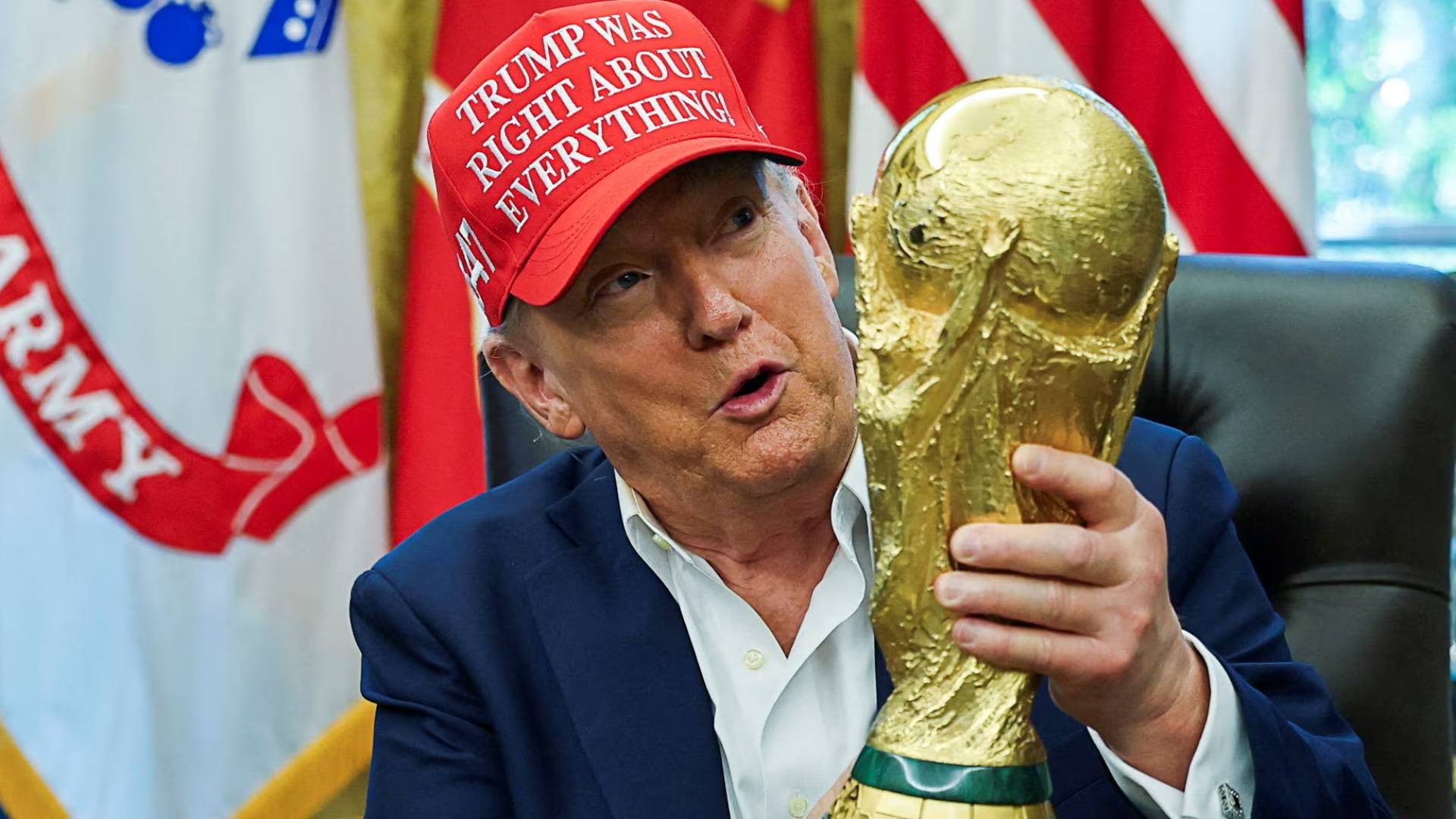U.S. President Donald Trump holding the FIFA World Cup Trophy in the Oval Office at the White House in Washington, D.C., U.S., August 22, 2025.
Trump travel ban casts shadow over Iran and Haiti at 2026 World Cup
Note: AI technology was used to generate this article’s audio.
- Trump’s travel ban could keep fans from Iran and Haiti from cheering at the 2026 World Cup, even as their teams compete.
In a striking collision of sport and geopolitics, the United States’ reinstated travel ban under President Donald Trump is threatening to complicate the participation of two World Cup–qualified nations, Iran and Haiti, in the 2026 FIFA tournament, even though both teams are set to compete on US soil.
Ban Excludes Fans, Not Athletes
In June 2025, President Trump signed Proclamation 10949, which reinstated a sweeping travel ban affecting citizens of 12 countries, including Iran and Haiti, citing national security concerns.
While the ban bars new visa issuance for both immigrant and non-immigrant categories from those countries, it includes a notable exemption: athletes, coaches, support staff and their immediate family members traveling for “major sporting events” like the 2026 World Cup.
However, fans and ordinary citizens from Iran and Haiti do not benefit from this exemption. The Economic Times The State Department has confirmed that, despite the exemption for teams, Haitian fans hoping to travel for the World Cup are unlikely to be granted visas, barring rare “national interest” waivers.
A Blow to Fan Inclusion
The decision has sparked sharp criticism from within the international soccer community. Fans argue that the World Cup, a global celebration of sport, should transcend political divides. FIFA President Gianni Infantino has previously emphasized that “fans from all over the world will be welcome,” a message now undercut by US travel policy.
For Haiti, the stakes are especially high. This is only their second-ever World Cup appearance and their first since 1974. Politico Many supporters hoped to attend, but Trump’s order sharply limits those chances.
In Iran, where diplomatic relations with the US have long been strained, the ban is fueling outrage. Iranian media outlets have decried the policy as a political affront, calling it “simply crazy.” Concerns swirl over whether not only fans, but other delegates, such as federation officials or media, will face hurdles entering the US
Political and Sporting Tensions Intertwine
Analysts suggest that Trump’s decision may send a broader message: while the US claims to welcome global sport, it is also signaling limits on who can cross its border. The ban’s inclusion of countries that have qualified for the World Cup underscores how tightly intertwined sport and geopolitics remain.
The White House has defended the policy as essential for national security, pointing to “deficient screening and vetting processes” and high visa overstay rates in the affected countries. But critics say the blanket approach punishes ordinary citizens and undermines the inclusive spirit of global sporting events.




